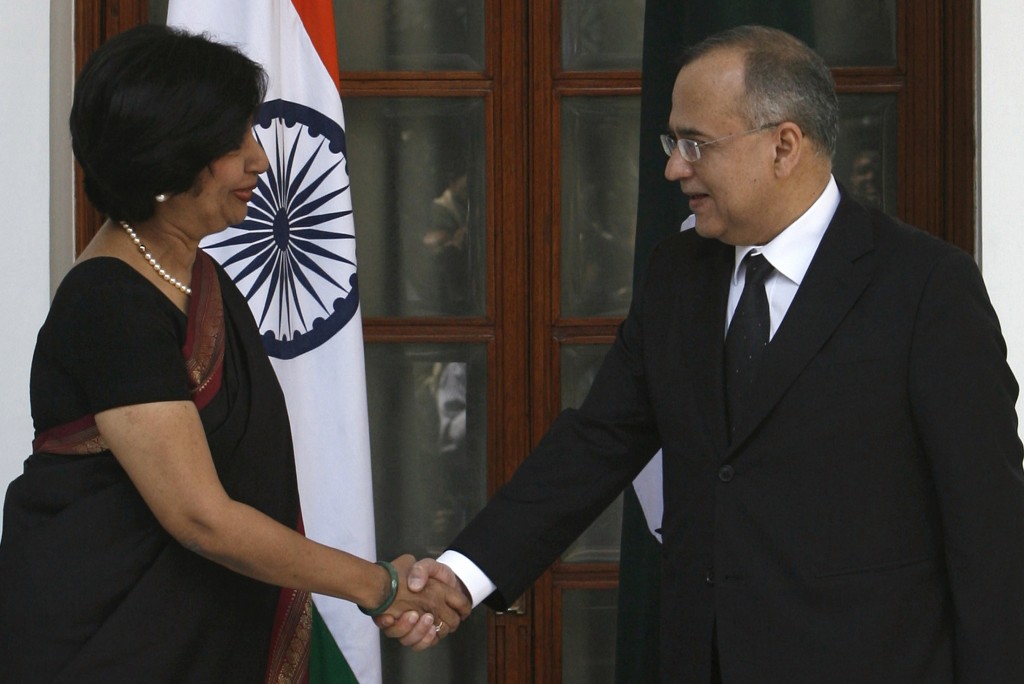Halting Steps in New Delhi
More on:

Although their leaders and foreign secretaries did meet in 2009, the February 25 talks between India and Pakistan were the first since the November 2008 Mumbai attacks aimed at normalizing dialogue. And they had raised hopes in some quarters that New Delhi and Islamabad might reenter into a peace process.
For now, such expectations are very unrealistic. It’s worth asking four questions about today’s talks:
1. Were the talks significant?
Somewhat. It’s no mean achievement that New Delhi and Islamabad returned to the table. But today’s discussion was about restoring contact, not making a breakthrough. An awful lot of water has passed under the bridge since the Mumbai attacks--and the two sides don’t agree on the parameters for discussion. India views Pakistan’s actions since Mumbai as insufficient. It has presented Islamabad with dossiers of information, but complains that many of the Mumbai suspects continue to walk free, not least Hafiz Saeed, the accused mastermind of the attacks, who only last week called for fresh attacks at a rally outside Lahore. Pakistan argues that it has acted against terrorism. It seeks to focus on political differences, not least the future of Kashmir, and wants an early return to formal peace talks, known as the "composite dialogue." But this isn’t likely anytime soon.
2. Is a breakthrough even possible?
It is, but not easily. The two sides have come close to reaching breakthroughs in the past, principally through a "backchannel" negotiation that picked up a head of steam between 2004 and 2007. In one account, the two sides were down to "semicolons" in 2007. But the most sensitive disputes, such as Kashmir, are as much political as intellectual. And the politics on both sides just aren’t conducive to reaching a settlement. Conventional wisdom in India is that Prime Minister Manmohan Singh badly wants a breakthrough. But his Pakistan policy is very vulnerable politically. And Pakistan is fragmented between multiple power centers: Its military (the most important power center) is especially skeptical of India. And Indian leaders do not believe that Pakistan’s civilian politicians can deliver.
3. Could India and Pakistan go to war again?
Yes. After the Mumbai attacks, the Indian government came under enormous pressure to respond. Another attack could increase the pressure further. Mumbai stole international headlines, but several major Indian metropolises were bombed throughout 2008: Jaipur in May; Ahmadabad and Bangalore in July; and New Delhi’s most famous shopping area, Connaught Place, in September. India has carefully avoided blaming Pakistan for attacks two weeks ago in Pune, but political pressure will intensify in the event of a future attack. Indians are divided over the effectiveness of military options. Some argue that tough military measures contributed to subsequent breakthroughs in the backchannel negotiations. Others disagree.
4. Does the United States have a role?
Not an obvious one. Clearly, American interests are engaged by the possibility of war--and tension reduction is in the U.S. interest. But third-party intervention is utterly unwelcome in India. And it hasn’t been especially conducive to breakthroughs in the past. Pakistan would certainly welcome greater U.S. involvement, but India would reject an American role outright. And a public U.S. role narrows the political space available for Singh to maneuver: Any peace package seen to have been reached under U.S. pressure would be dead on arrival in Indian politics. Barack Obama learned this lesson the hard way. As a candidate, he told TIME’s Joe Klein that he would appoint a U.S. envoy to seek peace in Kashmir. As president, he quickly backed off after strenuous Indian objections. But some in his administration cling to the idea. And as I write in the new issue of Foreign Affairs, this remains a source of tension and one of five areas of difference that could threaten U.S.-India relations.
More on:
 Online Store
Online Store
